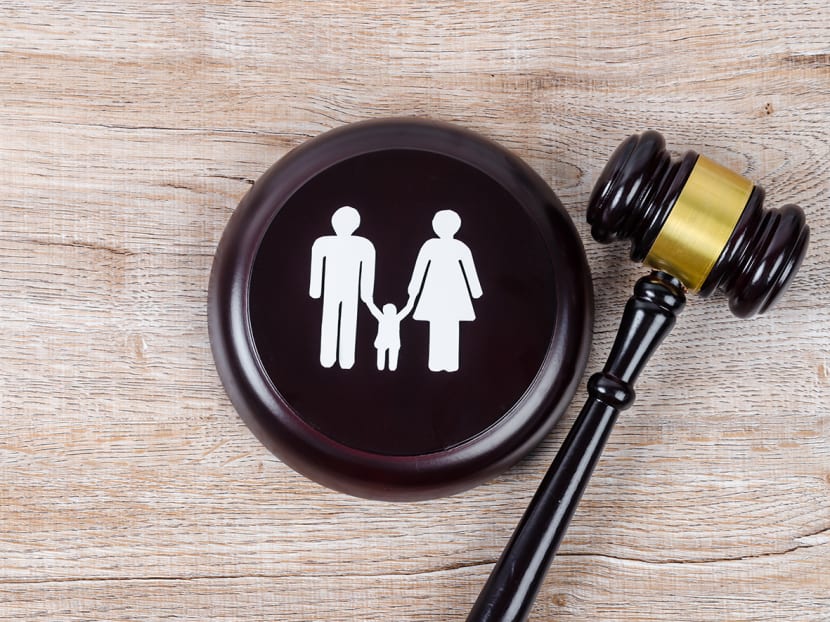Judge denies request by woman who earned double her ex-husband's income for 50:50 split in child maintenance
SINGAPORE — A judge has ruled that a man should pay less than his ex-wife for maintenance of their child, after the woman asked for a 50:50 split when she had earned S$1.2 million over four years, double what the man did.

The Bill aims to make family proceedings simpler and more efficient for those involved. It is also intended to help reduce the acrimony involved.
- A judge has ruled that a man should pay less than his ex-wife for maintenance of their child
- The woman — who earned S$1.2 million over four years, double what the man did — had asked for a 50:50 split
- She also claimed that monthly expenses for their five-year-old child was almost S$9,600
- The judge said that equal duty did not necessarily mean both parents have to pay the same amount in maintenance
- The courts should be a place of last resort to sort out what are ultimately differences in parenting decisions, the judge added
SINGAPORE — A judge has ruled that a man should pay less than his ex-wife for maintenance of their child, after the woman asked for a 50:50 split when she had earned S$1.2 million over four years, double what the man did.
While divorcing parents share equal duty for their child's maintenance under the Women’s Charter, it does not mean that they have to bear an equal quantum of maintenance, which should consider their earning power, Appellate Division Judge Debbie Ong said.
She made the comments in a case where a woman had appealed for the courts to increase the five-year-old child’s monthly "reasonable expenses" to S$9,575 — which includes S$1,500 on food and groceries — with the father contributing 34 per cent of this sum.
Alternatively, she sought for her ex-husband to pay 50 per cent of the original expenses of S$3,450.
In her written grounds of decision on Thursday (Jan 26), Judge Ong said given that the ratio of the father’s income to the mother’s income was about 34:66, “in my view it would be fair that the father bears 35 per cent of the child’s monthly expenditure of S$4,000”.
This was higher than the 30 per cent of S$3,450 he was initially ordered to pay by a district judge in February last year.
EQUAL RESPONSIBILITY NOT EQUAL QUANTUM
The grounds of decision, which did not name the mother, the father or their child, stated that the mother was of the view that the district judge did not correctly determine the child’s reasonable expense when issuing the maintenance order.
She claimed that the judge did not take into account the “standard of living to which the child was accustomed”.
The mother had also argued that the initial proportion ordered “was contrary to the principle that both parents bear equal responsibility”.
On the other side, the father was of the position that the child's expenses had been correctly determined and that the district judge did not err in apportioning the sum between the parents, considering that the mother’s income far exceeded the father’s.
The document stated that the man had suffered financial setbacks during the Covid-19 pandemic as he had been a commercial pilot.
Based on their income tax statements, the father’s total income from 2018 to 2021 was about S$600,000, while the mother drew close to S$1.2 million.
Judge Ong said that both parents having equal duty to maintain the child “does not necessarily translate to bearing an equal quantum of maintenance”.
“Each case must turn on its own facts,” she added.
DETERMINING REASONABLE EXPENSES
Judge Ong also outlined how the mother had sought to increase the child’s reasonable expenses.
For example, the mother had submitted that spending on books, edutainment and toys would come up to S$1,400, instead of S$175 as determined by the district judge.
The mother also sought S$1,500 for food and groceries, triple the amount set by the district judge.
Judge Ong said: “A recurring premise throughout her arguments was that these were reasonable expenses because they were actual expenses paid by her.”
However, the judge said that the mere fact that one party had spent such an amount “does not automatically render that expenditure reasonable” in determining the maintenance sum.
“Parties should show how their projected expenditure for the child’s expenses is reasonable having regard to all relevant circumstances, including the child’s standard of living and the parents’ financial means and resources.”
She added that the changed circumstances following a divorce are relevant because the breakdown of a household would invariably have an impact on the family’s financial needs and resources.
Parents may disagree over decisions such as what the child eats, what classes the child should attend and what lifestyle habits to cultivate in the child, she noted.
“These are fundamentally parenting decisions”, the judge said, adding that “a court of law is not the most appropriate forum to resolve such parenting matters”.
Disputes stemming from differences in parenting choices should only be brought to the court for resolution as a last resort.
“The parties should also consider mediation and therapeutic services in assisting them with such parenting issues.”
Judge Ong also said that the exact spending amount on a child would naturally change over time in line with his or her needs, but if parents file court proceedings for variation every time a change occurs, the society will lose the value or virtue of parenting being carried out cooperatively.
“Litigation has harmful effects on the child — materially, because the family loses in incurring litigation expenses, and psychologically, because conflict affects the whole family in ways not easily visible.”








